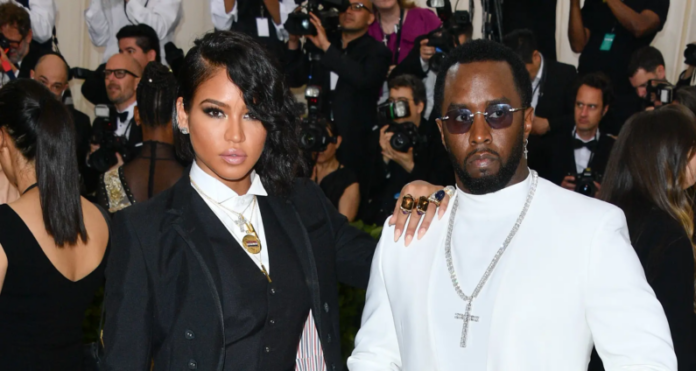When Sean “Diddy” Combs posted an apology video on Sunday, many noticed a glaring omission: he did not apologize directly to his ex-girlfriend, Cassie Ventura.
This raised eyebrows, particularly given the recent, highly publicized allegations and subsequent lawsuit filed by Cassie against the music mogul.
The controversy stems from graphic surveillance footage showing Diddy physically assaulting Cassie in a hotel, a distressing incident that punctuated their tumultuous relationship spanning from 2007 to 2018.
In a lawsuit filed shortly before the apology video, Cassie accused the Bad Boy Records founder of multiple crimes, including abuse and human trafficking.
Despite the gravity of these allegations, Diddy’s only previous acknowledgment of the situation was a brief social media post in December.
Following the filing of Cassie’s lawsuit, the two parties reached a settlement for an undisclosed sum.
This settlement included a stringent non-disclosure agreement (NDA), which, according to TMZ, prohibits both Diddy and Cassie from mentioning each other’s names publicly.
This legal constraint explains why Diddy’s apology video did not specifically address Cassie, and why Cassie has remained silent on social media about the case.
However, the NDA does not extend to third parties, as demonstrated by Cassie’s husband, Alex Fine.
On the day the incriminating footage leaked, Fine publicly condemned Diddy’s actions with a pointed statement on social media, saying, “Men who hit women aren’t men.”
Diddy’s attorneys reportedly ensured that his apology video complied with the terms of the settlement, which was allegedly initiated by Diddy himself.
This adherence to the legal agreement underscores the complexities surrounding public statements in the aftermath of such high-profile and sensitive legal settlements.
In the wake of undeniable video evidence of domestic violence and the ongoing legal challenges, Diddy’s lack of a direct apology to Cassie has sparked discussions about accountability and the limitations imposed by legal agreements on public apologies.

